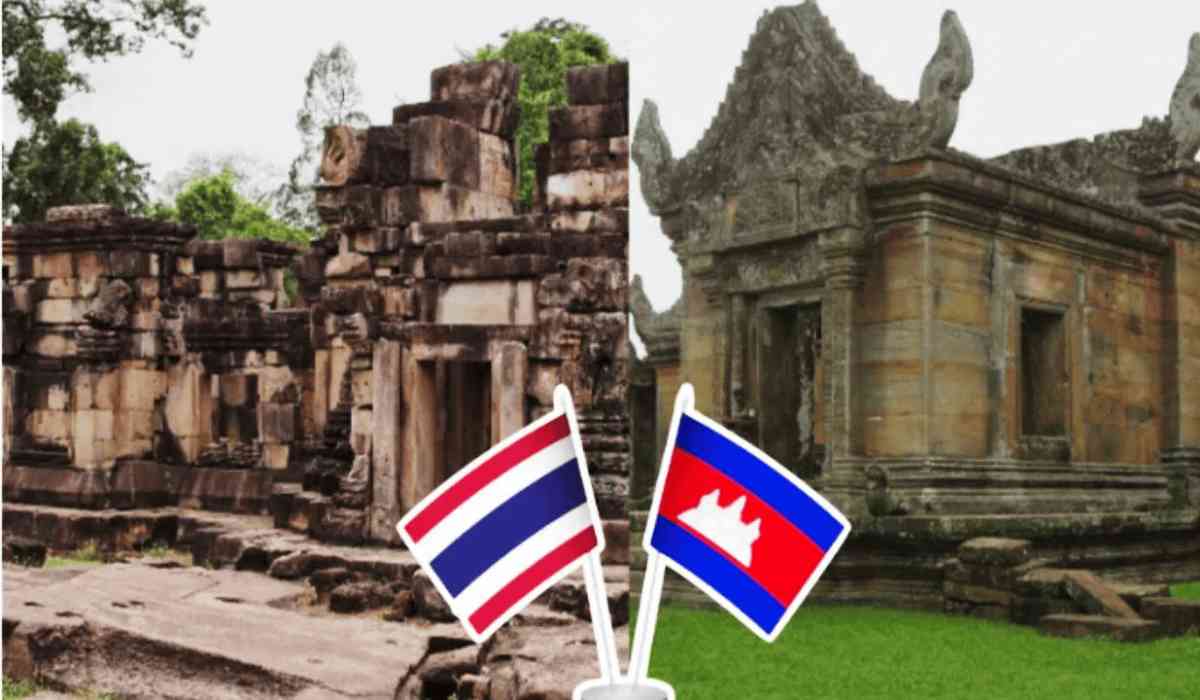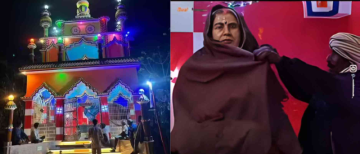Over 138,000 civilians displaced, dozens dead, ancient grievances reignited, and the world watching anxiously — the Thailand-Cambodia border conflict is quickly becoming Southeast Asia’s most dangerous flashpoint in years.
From Smoldering Tensions to Explosive Clashes
The border between Thailand and Cambodia has long been a source of friction. But what began as a simmering territorial disagreement has erupted into one of the deadliest confrontations in over a decade. As of the latest reports, at least 32 people have lost their lives, more than 138,000 civilians have fled their homes, and diplomatic relations are nearing a breaking point. While both nations blame each other for initiating the violence, the consequences are mounting on all fronts — militarily, politically, and humanitarianly.
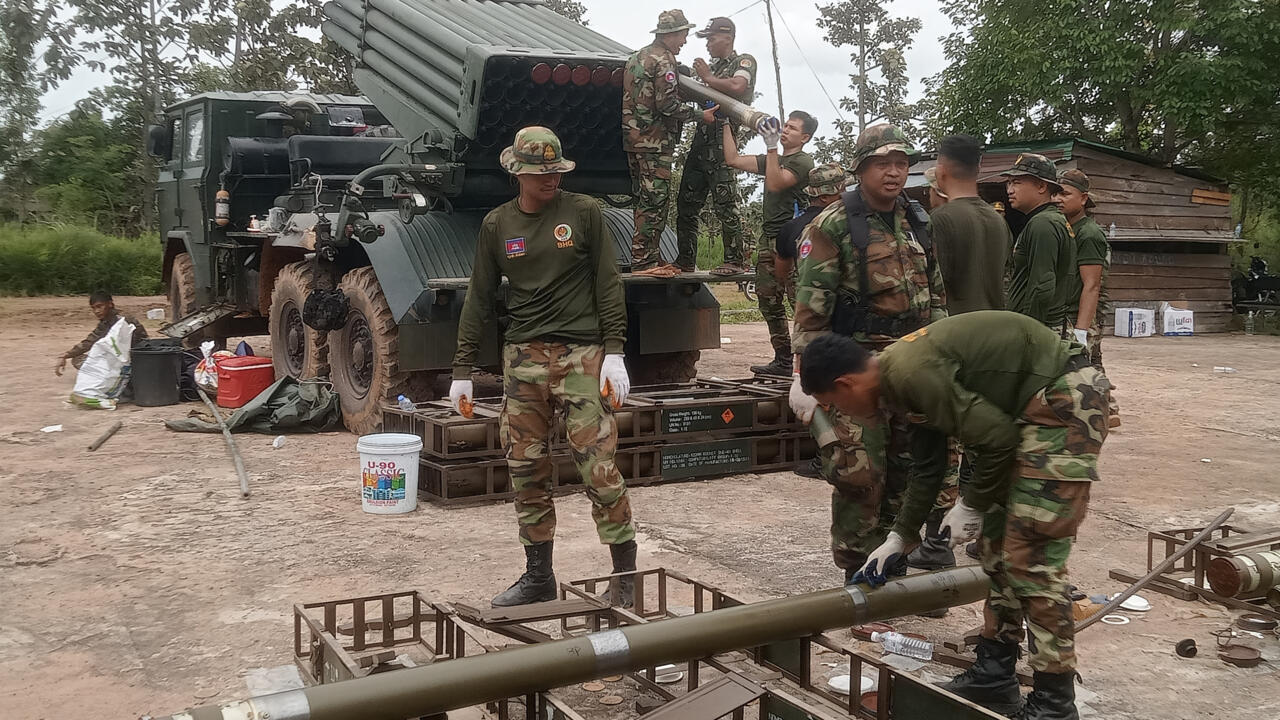
The Spark: Landmines, Ancient Grievances, and Fragile Diplomacy
Tensions reignited in May 2025 when a Cambodian soldier was killed during a patrol in a disputed border area. The confrontation triggered a chain reaction: Thailand closed key border crossings and expelled Cambodia’s ambassador; Cambodia downgraded diplomatic ties and recalled its own envoy. The situation escalated further on July 23, when five Thai soldiers were wounded by landmines — mines Thailand claims were freshly planted.
The next day, fighting erupted at multiple flashpoints along the 800-kilometer (500-mile) border, particularly near contested heritage sites and rural communities. Artillery fire, BM-21 rocket systems, fighter jets, and even cluster munitions entered the fray. Both countries claim the other struck first and accuse one another of targeting civilian infrastructure.
Rising Casualties and a Growing Humanitarian Crisis
The death toll continues to climb with each passing day. Thailand reports at least 19 fatalities — six soldiers and 13 civilians — and over 59 injured. Cambodia has recorded 13 deaths, including five soldiers and eight civilians. Hospitals in frontline provinces like Surin, Sisaket, and Oddar Meanchey have been overwhelmed, some even hit by shelling themselves.
More than 138,000 people have been evacuated from Thai border provinces, while at least 23,000 Cambodians have also been forced to flee. Scenes of chaos and despair have emerged from makeshift shelters in Buddhist temples, gymnasiums, and university halls. Children cry as explosions echo in the distance. Elderly villagers dig bunkers in their fields. “This is not just a breach of borders. It is a breach of humanity,” said Thailand’s social development minister, Varawut Silpa-archa.
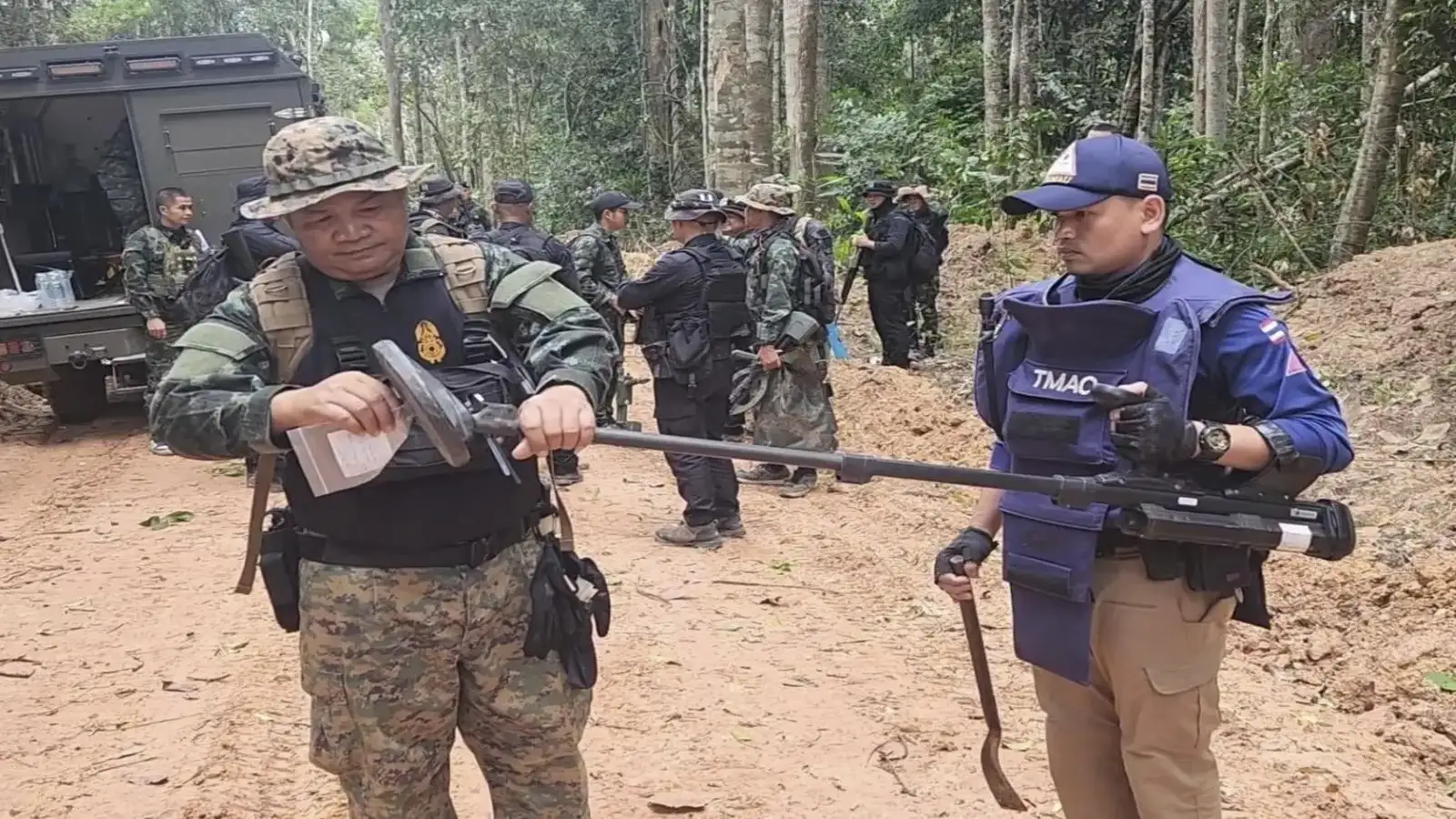
Military Escalation: Artillery, Jets, and Cluster Munitions
The Thai military has accused Cambodia of launching unprovoked artillery strikes and rockets that hit a hospital, school compound, and a petrol station. In response, Thailand deployed F-16 jets and conducted targeted airstrikes. Cambodia, for its part, claims Thai forces fired into Pursat Province, damaging civilian areas.
Of particular concern is Thailand’s warning that it may use cluster munitions — weapons banned under the Convention on Cluster Munitions (CCM) due to their wide-area impact and long-term dangers. Neither Thailand nor Cambodia are signatories to the CCM, and their use could significantly raise the stakes and civilian toll.
Historic Disputes: A Colonial-Era Powder Keg
At the root of the conflict lies a colonial legacy. France, which colonized Cambodia until 1953, mapped the border in ways that are now disputed. Both nations claim territories surrounding culturally and religiously significant sites, including ancient temples. These unresolved boundaries, fueled by nationalism and historical grievances, have led to repeated clashes — notably in 2008–2011 and again in 2025.
As Chulalongkorn University’s Thitinan Pongsudhirak explains, “Thais think the French took land from Thailand and gave it to Cambodia. Cambodians believe it's their ancient civilization and rightful territory. It’s a deeply emotional and symbolic dispute.”
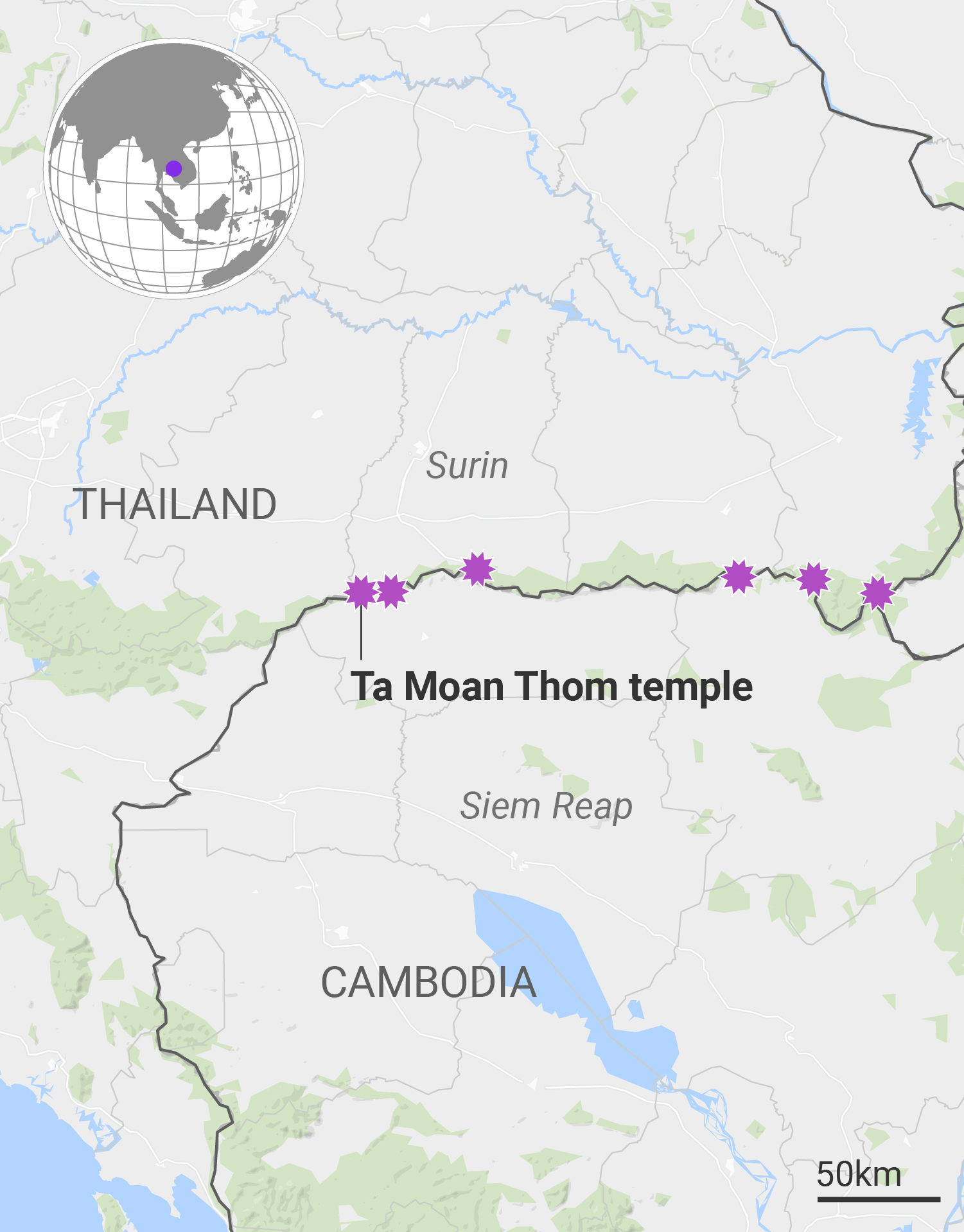
Diplomatic Fallout: ASEAN’s Limits and China’s Shadow
Efforts at diplomacy have so far faltered. Cambodia has repeatedly called for an “immediate and unconditional ceasefire,” and the United Nations Security Council convened a closed-door emergency session at Cambodia’s request. All 15 council members urged restraint and encouraged bilateral or regional dialogue.
Thailand, while open to negotiations, insists Cambodia has yet to respond to proposals facilitated by Malaysia, the current ASEAN chair. Acting Thai Prime Minister Phumtham Wechayachai has warned that if violence continues, it “could spiral into full-scale war.” He accuses Cambodia of war crimes for targeting civilian areas.
ASEAN's effectiveness is also in question. Known for its non-interference policy, the bloc’s ability — or willingness — to mediate remains uncertain. “Only China has the leverage to act as mediator,” said Tita Sanglee of the ISEAS–Yusof Ishak Institute. But with Beijing closely aligned with Cambodia, Thailand may be reluctant to accept Chinese mediation.
Power Struggles and Politics Behind the Firefight
Beyond the battlefield, the conflict is entangled in the political dramas of both nations. Cambodia’s Hun Manet, who succeeded his father Hun Sen in 2023, is seen as consolidating his grip through nationalism. In Thailand, Prime Minister Paetongtarn Shinawatra — daughter of former PM Thaksin Shinawatra — was suspended following a leaked phone call with Hun Sen, in which she appeared to criticize the Thai military. The call ignited outrage and weakened her party’s position.
Even more intriguing is the personal feud between Hun Sen and Thaksin — once close allies now trading public insults. Thaksin, visiting Ubon Ratchathani near the border, condemned Cambodian actions and denied that the families' falling-out triggered the conflict. Yet the timing and rhetoric suggest the feud is inflaming already volatile relations.
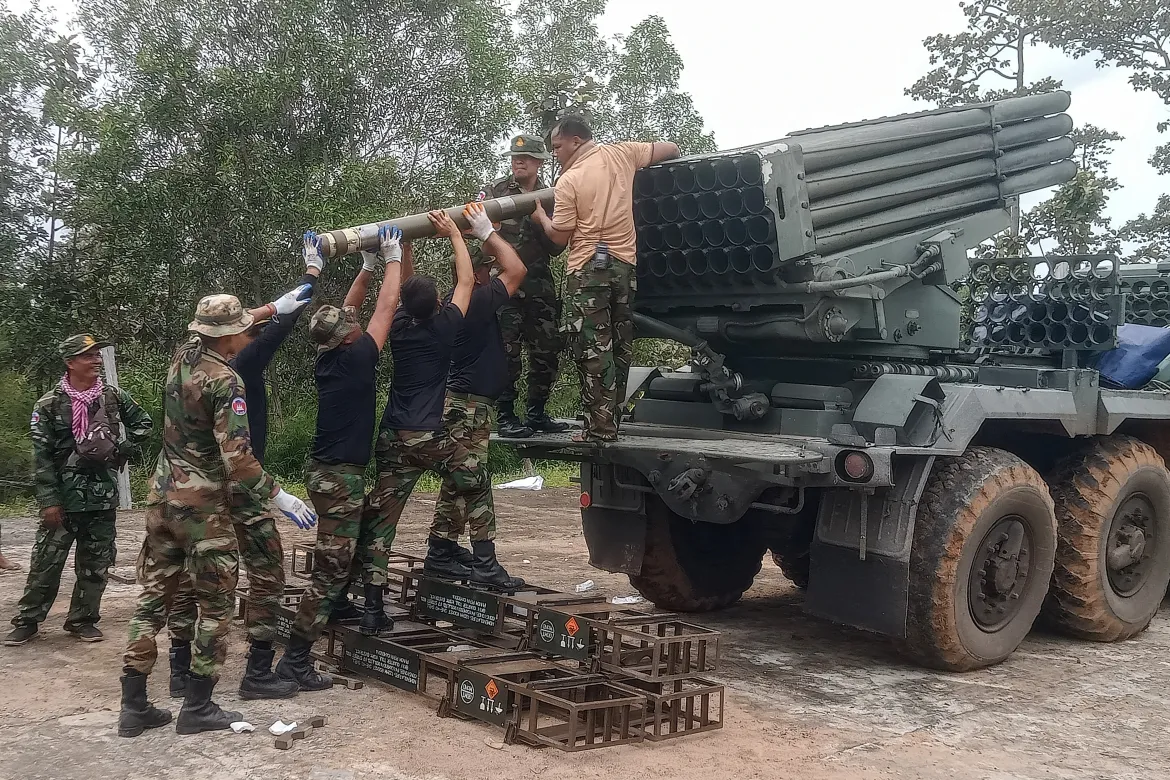
International Reactions and the Risk of Regional Spillover
World powers are watching closely. The United States and China — both of whom have strategic and economic ties with Thailand and Cambodia — have called for de-escalation. The U.S. Embassy in Bangkok has warned its citizens to avoid travel near the border.
Meanwhile, martial law has been declared in several Thai provinces, and military convoys are on the move. Human rights groups are raising alarm over possible abuses under martial law, including detentions without charges.
Paths Forward: Diplomacy or Detonation?
The road to peace remains precarious. Cambodia favors a return to the International Court of Justice (ICJ), but Thailand refuses to accept the court’s jurisdiction. Talks through Malaysia or ASEAN remain a possibility, though increasingly unlikely unless both sides make tangible concessions.
What is clear is that a political resolution — not a military one — is the only sustainable path forward. The cost of further escalation is too high: in lives lost, communities shattered, and regional stability endangered.
As Veng Chin, a 74-year-old Cambodian farmer now sheltering at a border temple, put it:
“I only want to return home and work on my farm. Please, let our leaders talk instead of fight.”
A Crisis That Demands Urgency
This conflict is more than a skirmish. It’s a complex mix of historical grievances, political power plays, and real human suffering. Without immediate and sincere diplomatic engagement, Thailand and Cambodia risk plunging deeper into a conflict that could destabilize Southeast Asia and scar generations to come.
With inputs from agencies
Image Source: Multiple agencies
© Copyright 2025. All Rights Reserved Powered by Vygr Media.

